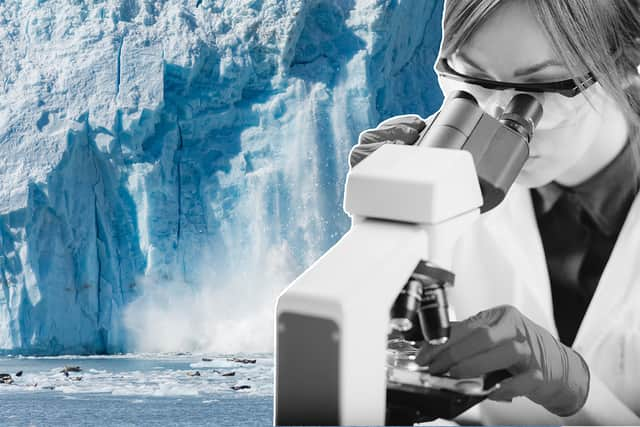Scientists ‘extremely worried’ as ocean temperatures hit record high ahead of looming El Niño weather event
and live on Freeview channel 276
This month the world’s oceans have hit a new record high temperature, alarming scientists and adding to serious concerns that it will add to global warming.
The heating of the world’s oceans has never happened so quickly, or warmed so much. Scientists worry that combined with other weather events, the world’s temperature could reach a concerning new level by the end of next year.
Advertisement
Hide AdAdvertisement
Hide AdA new study, published last week revealed how over the past 15 years, the Earth has accumulated almost as much heat as it did in the previous 45 years, with most of the extra energy going into the oceans. This is having real world consequences as in March sea surface temperatures off the east coast of North America were as much as 13.8C higher than the 1981-2011 average.
Karina Von Schuckmann, the lead author of the new study and an oceanographer at the research group Mercator Ocean International, told BBC News: "It's not yet well established, why such a rapid change, and such a huge change is happening.
"We have doubled the heat in the climate system the last 15 years, I don't want to say this is climate change, or natural variability or a mixture of both, we don't know yet. But we do see this change."


Another important factor that is worrying scientists is the weather phenomenon known as the El Niño Southern Oscillation. For the past three years this naturally occurring event has been in a cooler phase called La Niña, and has helped to keep global temperatures in check.
Advertisement
Hide AdAdvertisement
Hide AdBut experts believe that a strong El Niño weather event will set in over the next months which could kill off marine life, lead to more extreme weather and raise sea levels. An El Niño weather event is a weather system that heats the ocean, and researchers believe it will have significant implications for the world. A coastal El Niño has already developed off the shores of Peru and Ecuador and experts believe a fully formed event will follow with implications for global temperatures.
El Niño has an impact on ocean temperatures, the speed and strength of ocean currents, the health of coastal fisheries, and local weather.
El Niño is a climate pattern that describes the unusual warming of surface waters in the eastern tropical Pacific Ocean. It is the “warm phase” of a larger phenomenon called the El Niño-Southern Oscillation (ENSO).
La Niña is the “cool phase” of ENSO - a pattern that describes the unusual cooling of the region’s surface waters.
El Niño events occur irregularly at two- to seven-year intervals, it is not predictable. It was recognized by fishers off the coast of Peru as the appearance of unusually warm water and soon came to describe irregular and intense climate changes rather than just the warming of coastal surface waters.
The consequences of an El Niño weather pattern are: loss of marine species, more extreme weather with hurricanes and cyclones picking up extra energy, sea-level rise and coastal flooding.
Dr Josef Ludescher, from the Potsdam Institute for Climate Research, said: "If a new El Niño comes on top of it, we will probably have additional global warming of 0.2-0.25C.
"The impact on the temperature is relaxed a few months after the peak of any El Niño so this is why 2024 will be probably the warmest on record. And we may, we will be close to 1.5C days and perhaps we will temporarily go over."
El Niño will likely disrupt weather patterns around the world, weaken the monsoon and threaten more wildfires in Australia.
Advertisement
Hide AdAdvertisement
Hide AdExperts are very worried about the fact that as more heat goes into the ocean, the waters may be less able to store excess energy and so the heat won’t stay there.
The BBC contacted several scientists for comments on the implications of this but they were reluctant to go on the record. However, one spoke of being "extremely worried and completely stressed."
Some research has shown that the world is warming in jumps with little changes over a period of years and then sudden leaps upwards - closely linked to the development of El Niño.
Karina Von Schuckmann said there is some hope in this scenario as temperatures may come down again after the El Niño subsides.
She told BBC News: "We still have a window where we can act and we should use this to reduce the consequences.”
Comment Guidelines
National World encourages reader discussion on our stories. User feedback, insights and back-and-forth exchanges add a rich layer of context to reporting. Please review our Community Guidelines before commenting.
